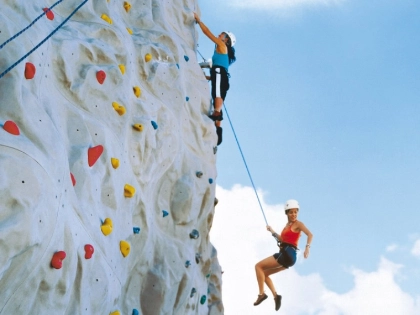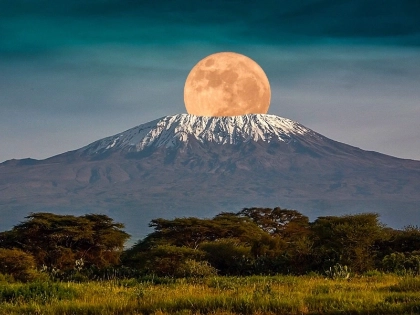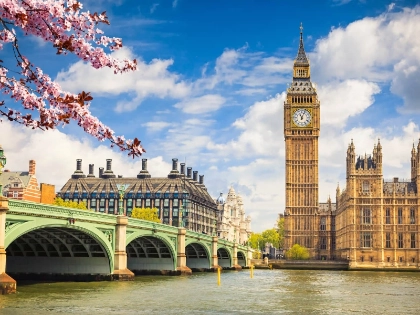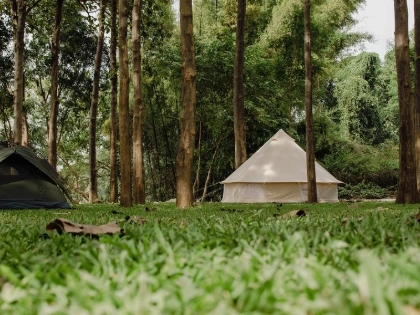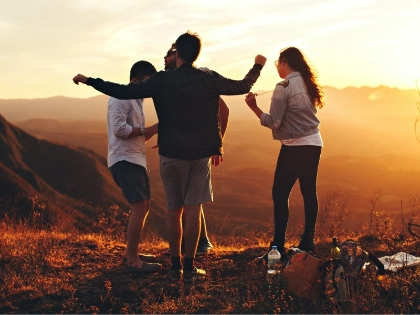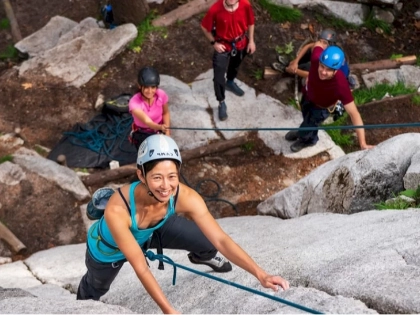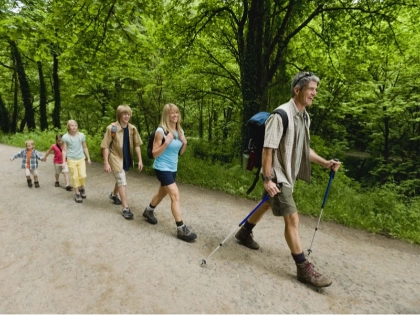Which Country Invented Camping?
For millennia, people have been camping and living a simpler lifestyle by spending time in nature. But when camps managed by groups like the Boy Scouts and YMCA began to appear in the late 1800s, organized camping truly took off. Frederick Gunn founded the first leisure camp at the Gunnery School in Washington, Connecticut, in 1861.
England
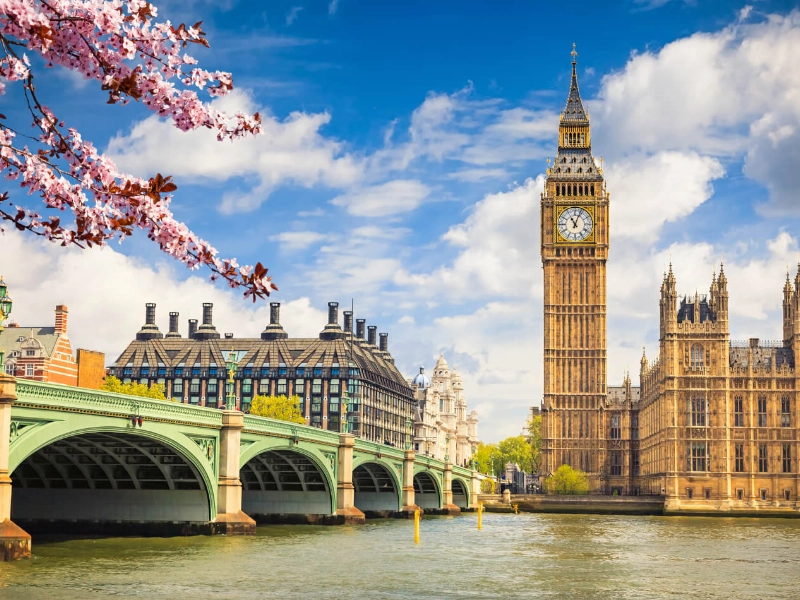
France
 Prior to the 1860s, camping was mostly utilitarian and driven by necessity, but as the nation got more industrialized, higher-class groups started using it for leisure as a means of maintaining a connection to the natural world. Campsites in national parks and other public natural resources were popular destinations for this privileged group of campers. They were able to distinguish themselves from migratory and mobile groups that would be viewed as impolite "tramps" and hoboes, in addition to enjoying the outdoors.
Around this time, organized camping in the contemporary sense was introduced. The first camp ever held on a regular basis was Camp Chocorua in New Hampshire, on Lake Asquam, although its original purpose was different from today's recreational ones. After the camp's nine-year run, numerous camps of a similar nature were established in the years that followed. One of the most significant advocates of recreational camping is Thomas Hiram Holding. In addition to making camping more popular, he also created the first tent that was actually movable and started the organization that would later be known as the Camping Club.
Prior to the 1860s, camping was mostly utilitarian and driven by necessity, but as the nation got more industrialized, higher-class groups started using it for leisure as a means of maintaining a connection to the natural world. Campsites in national parks and other public natural resources were popular destinations for this privileged group of campers. They were able to distinguish themselves from migratory and mobile groups that would be viewed as impolite "tramps" and hoboes, in addition to enjoying the outdoors.
Around this time, organized camping in the contemporary sense was introduced. The first camp ever held on a regular basis was Camp Chocorua in New Hampshire, on Lake Asquam, although its original purpose was different from today's recreational ones. After the camp's nine-year run, numerous camps of a similar nature were established in the years that followed. One of the most significant advocates of recreational camping is Thomas Hiram Holding. In addition to making camping more popular, he also created the first tent that was actually movable and started the organization that would later be known as the Camping Club.
United States
 Experts assert that William Henry Harrison Murray's publication of Camp Life in the Adirondacks at the end of the 1860s marked the true beginning of recreational camping in America. Through his book, Murray introduced readers to the wonders, excitement, and health advantages of venturing into remote regions on foot, by horseback, or in a canoe.
The emergence of outdoor youth organizations like the Girl Guides and the Boy Scouts in the early 1900s contributed to the rise in popularity of recreational camping in America. The Boy Scouts were founded by Sir Robert Baden-Powell in part because of his camping trips, and The Camper's Handbook, penned by Thomas Hiram Holding in 1908, taught people the fundamentals of camping.
As camping gained popularity in America, it developed into a more regimented activity that prioritized environmental stewardship, social growth, and character building. Nonetheless, it is crucial to remember that racial and social distinctions, along with a contempt or denigration of native land uses, continued to be major obstacles to the growth of organized camps in America.
Experts assert that William Henry Harrison Murray's publication of Camp Life in the Adirondacks at the end of the 1860s marked the true beginning of recreational camping in America. Through his book, Murray introduced readers to the wonders, excitement, and health advantages of venturing into remote regions on foot, by horseback, or in a canoe.
The emergence of outdoor youth organizations like the Girl Guides and the Boy Scouts in the early 1900s contributed to the rise in popularity of recreational camping in America. The Boy Scouts were founded by Sir Robert Baden-Powell in part because of his camping trips, and The Camper's Handbook, penned by Thomas Hiram Holding in 1908, taught people the fundamentals of camping.
As camping gained popularity in America, it developed into a more regimented activity that prioritized environmental stewardship, social growth, and character building. Nonetheless, it is crucial to remember that racial and social distinctions, along with a contempt or denigration of native land uses, continued to be major obstacles to the growth of organized camps in America.
Australia
 A culture of camping developed as settlement communities spread. Campsites served as transient displays of a social structure that was more autonomous and egalitarian than colonial society as a whole.
Although they did not introduce tents to Australia, Aboriginal people were skilled campers, as shown by the middens found along coastal beaches and their aptitude for choosing locations with the best sun, wind, and water access. Camping is a modern activity that can be facilitated by the same abilities that allowed them to survive off the land: hunting, fishing, gathering, and farming.
In a way, the well-known "Australian" values of egalitarianism and mateship were developed on a campground. There are ladies who camp with bird-watching organizations and who have established an Aboriginal tent embassy outside Old Parliament House, but Garner's bloke with his lachute and dangling corks is just one face of this new Australian camping culture.
A culture of camping developed as settlement communities spread. Campsites served as transient displays of a social structure that was more autonomous and egalitarian than colonial society as a whole.
Although they did not introduce tents to Australia, Aboriginal people were skilled campers, as shown by the middens found along coastal beaches and their aptitude for choosing locations with the best sun, wind, and water access. Camping is a modern activity that can be facilitated by the same abilities that allowed them to survive off the land: hunting, fishing, gathering, and farming.
In a way, the well-known "Australian" values of egalitarianism and mateship were developed on a campground. There are ladies who camp with bird-watching organizations and who have established an Aboriginal tent embassy outside Old Parliament House, but Garner's bloke with his lachute and dangling corks is just one face of this new Australian camping culture.
